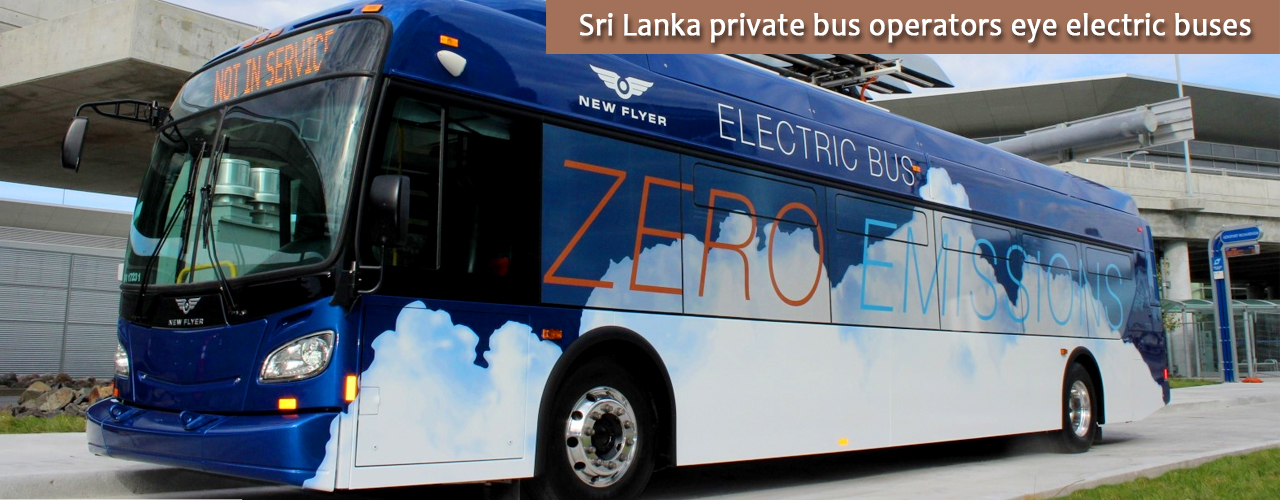Sri Lanka private bus operators eye electric buses
Changes in commuter transportation modes as passengers shift from regulated bus services to private transport resulting in buses losing 1,500 passengers a day has compelled the Sri Lanka Private Bus Owners Association to turn towards importing 1,000 electric low-floor buses to set up an electric city bus company on key routes in Colombo.
However, the Association claims that support from authorities has been lacklustre in this endeavour, adding that it was not possible to implement the project without the co-operation of the authorities even though the association was willing to invest the funds, adding that the association had repeatedly asked authorities to establish priority bus lanes to no avail.
The association’s plan involved importing Chinese electric buses valued at approximately LKR 15 million each from manufacturers such as Ankai etc to operate them on the bus lanes, with existing route license holders becoming shareholders of the new electric bus company.
Also, private bus owners have proposed the use of a “smart card”, where revenues will go to a central collection section and the money distributed amongst individual buses based on operated kilometres, as opposed to passenger kilometres, so that money from peak hours can be used to operate buses off peak, thus eliminating the current competition between multiple busses for a single passenger, which often results in fatal road casualties.
No peak or off peak prices exist within the country’s price controlled regulated bus system. Operators are not allowed to charge higher prices at night, preventing the existence and growth of night buses. The smart card system will allow them to resume night services without the need to charge higher tariffs at night, but uniform tariffs at all hours that will be higher than the current rates, but with the added comfort of air conditioned bus travel being provided to passengers.
The busses operated at night are initially expected to yield a loss, but with the country’s night activities on the rise, the association expects this to be only a temporary situation.
Private bus operators are trying to come up with ways to attract more passengers as existing regulations have prevented innovation driving people out of the sector. A bus strike last year hardly affected the community unlike in earlier years as with people using three wheelers and their own vehicles to move about.
According to industry sources unofficial secondary market prices of route license have fallen on many routes. On key routes such as Galle Road, prices have halved over the past three to four years as passenger numbers continue to decline.
OSL TAKE:
Despite the lack of enthusiasm for the project from authorities, the fact remains that Sri Lanka’s infrastructure programme calls for the modernisation of all its public transportation methods.
It is pertinent to note that every country in the world requires an efficient bus transportation system and if an enterprising entrepreneur were to approach the project with the proper know-how and implementation expertise, the authorities are likely to be swayed in its favour.
Further improved public transport methods and facilities are likely to attract passengers back in addition to enticing new ones.
| Article Code : | VBS/AT/29082017/Z_2 |

